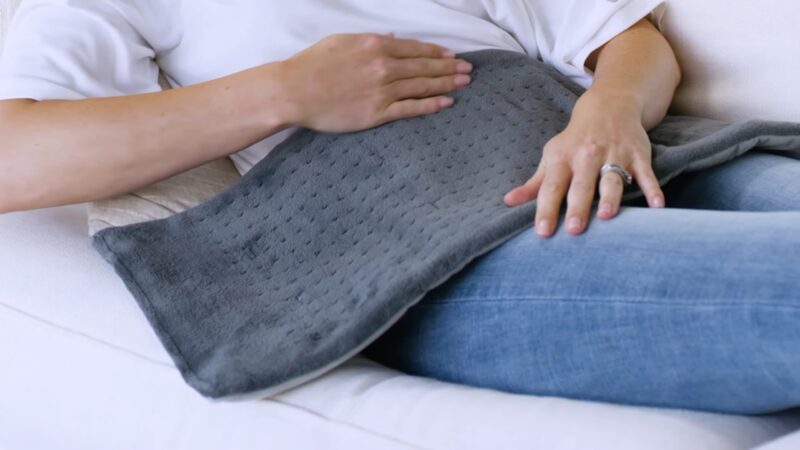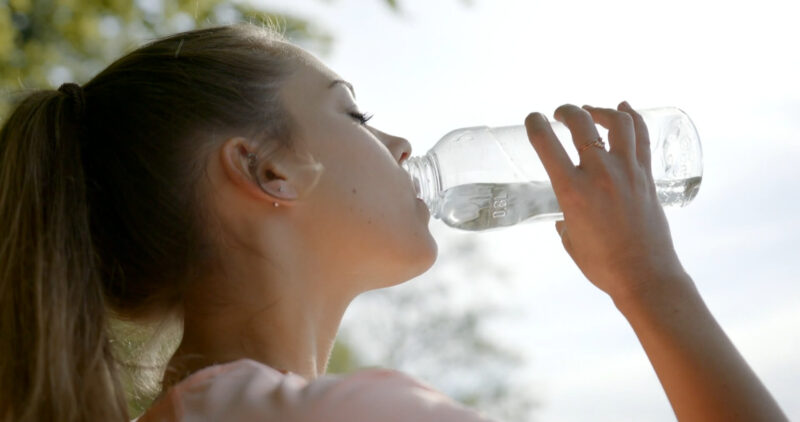A UTI occurs when bacteria enter the urinary tract, leading to an infection in the bladder, urethra, ureters, or kidneys. Women are more prone to these infections due to their shorter urethra, which allows bacteria easier access to the bladder.
Symptoms include a strong, persistent urge to urinate, a burning sensation when urinating, passing frequent, small amounts of urine, and cloudy or strong-smelling urine. Today we’ll help you find out how to effectively get rid of these symptoms, ensuring you can return to your everyday activities without discomfort.
Key Takeaways
- To get rid of a UTI, increase fluid intake, apply heat for pain relief, use over-the-counter medication for symptom management, practice good hygiene, stay hydrated, urinate frequently, and consume cranberry products.
- Also, consult a doctor for antibiotics if necessary, and make lifestyle adjustments such as dietary changes, avoiding irritants, and wearing cotton underwear.
- While most UTIs are caused by bacteria, specifically E. coli, fungi, and viruses can also cause urinary tract infections. These types of infections are less common and may require different treatment approaches.
- UTIs can lead to serious health issues: If left untreated, a UTI can spread to the kidneys, leading to a more serious infection known as pyelonephritis. This condition can cause permanent kidney damage if not properly treated.
Immediate Steps to Take
1. Increase Your Fluid Intake

Drinking plenty of fluids, especially water, is crucial. It helps flush out the bacteria causing the infection. Aim for at least eight glasses of water a day. Not only does this dilute your urine, making it less painful to urinate, but it also ensures that you’re urinating more frequently, which helps to remove bacteria from the urinary tract.
Herbal teas and fruit-infused water are also good choices to keep you hydrated and may offer additional benefits for urinary health.
| Tea Type | Active Components | Benefits |
|---|---|---|
| Green Tea | Antioxidants | Effective against Escherichia coli bacteria that cause UTIs |
| Cranberry Tea | Proanthocyanidins, Vitamin C | Prevents bacterial entry into the urinary tract and reduces overgrowth of bad bacteria |
| Chamomile Tea | Antioxidants, Anti-inflammatory, Antimicrobial | Alleviates UTI symptoms |
| Parsley Tea | Vitamin C, Antioxidants, Natural Diuretic | Flushes bacteria out of the urinary tract |
| Mint Tea | Antimicrobial, Antibacterial, Antiviral, Anti-inflammatory | Aids in restoring bacterial balance |
2. Use Heat

For those experiencing pain in the abdomen or back, a warm heating pad can help alleviate the discomfort. Ensure it’s not too hot to prevent skin damage. Applying the heat for 15-20 minutes at a time can significantly reduce pain and provide a comforting effect.
This method is particularly effective for easing the muscle spasms that accompany a UTI. Be sure to wrap the heating pad in a cloth to protect your skin.
Over-the-Counter Relief
Phenazopyridine hydrochloride, an over-the-counter medication, can provide temporary relief from the burning sensation during urination. However, it’s not a cure and may turn your urine bright orange or red.
It’s important to use this medication as directed and not to rely on it as a long-term solution. Always read the label for proper dosage and consult a pharmacist or doctor if you have any concerns. This medication can be a helpful tool in managing symptoms as you seek further treatment.
Long-Term Prevention Strategies
Understanding the risks and preventive measures for UTI and other conditions, such as trapped sections of the intestine, highlights the importance of comprehensive health awareness.
1. Practice Good Hygiene
Wiping from front to back after using the toilet prevents bacteria from the anal region from spreading to the vagina and urethra. This simple practice is one of the most effective ways to reduce the risk of UTIs.
Showering regularly and avoiding harsh soaps or body washes in the genital area can also help maintain the natural flora and prevent infections.
2. Stay Hydrated

Continuously drink water throughout the day to help flush bacteria from your system. Keeping a water bottle with you at all times encourages you to drink more water and makes it easier to stay hydrated.
If you’re active or it’s hot outside, you may need to increase your water intake further to compensate for the increased fluid loss.
3. Urinate Frequently

Avoid holding in urine for long periods. Urinating frequently can help expel bacteria from the urinary tract. Making a conscious effort to go to the bathroom every few hours, even if you don’t feel a strong urge to urinate, can be beneficial.
This practice helps prevent bacteria from settling and multiplying within the urinary tract.
4. Consume Cranberry Products
Some studies suggest that cranberry juice or supplements may prevent UTIs by preventing bacteria from adhering to the urinary tract walls. While cranberry products should not replace medical treatment, they can be a useful part of a prevention strategy.
Look for cranberry juice that is unsweetened to avoid excess sugar, and consult with a healthcare provider before starting any new supplement, especially if you take other medications.
When to See a Doctor?
If symptoms persist or worsen, it’s crucial to consult a healthcare provider. They may prescribe antibiotics, which are effective in treating UTIs. It’s important to complete the full course of antibiotics even if symptoms improve to ensure the infection is fully eradicated.
A healthcare professional can also provide advice on preventing future infections and may suggest further tests if UTIs are a recurrent problem. Ignoring symptoms or delaying treatment can lead to more serious complications, including kidney infections.
Home Remedies and Lifestyle Adjustments
Make Diet Changes

Your diet is one of the most important factors that influences your health. Just like with any other condition, making dietary changes can greatly influence your recovery.
For example, after undergoing appendix removal surgery, adjusting your diet to include certain nourishing foods can significantly aid in your recovery, ensuring your digestive system regains its strength at a comfortable pace.
Similarly, to prevent UTIs, Incorporate foods rich in antioxidants and vitamins, such as fruits and vegetables, to boost your immune system. These nutrients can help your body fight off infections more effectively.
Probiotic-rich foods, like yogurt and kefir, can also support a healthy balance of bacteria in your body, potentially reducing the risk of UTIs.
Avoid Irritants
Coffee, alcohol, spicy foods, and acidic fruits can irritate the bladder. Reducing or eliminating these can help alleviate symptoms. Drinking non-caffeinated, non-acidic beverages instead can be beneficial.
If you smoke, consider quitting, as smoking can also irritate the bladder and increase the risk of UTIs.
Wear Cotton Underwear
Cotton allows your skin to breathe and reduces moisture, creating a less hospitable environment for bacteria. Changing your underwear daily, or even more frequently if you’re active or sweating, can also help reduce the risk.
Avoid tight-fitting clothes and opt for loose, breathable fabrics to keep the area around your urethra dry.
FAQs
Can UTIs go away on their own without treatment?
While mild UTIs can sometimes resolve on their own, it’s risky to ignore symptoms in hopes of self-resolution. Untreated UTIs can lead to more serious complications, including kidney infections.
Are UTIs contagious?
No, UTIs are not contagious and cannot be transmitted from person to person like a cold or flu. They are caused by bacteria entering the urinary tract.
Can stress cause a UTI?
Stress itself does not cause UTIs; however, high-stress levels can weaken the immune system, making it easier for infections to occur. Managing stress can be a part of a holistic approach to prevent UTIs.
Is it possible to get a UTI from swimming pools or hot tubs?
Bacteria thrive in warm, moist environments, including hot tubs and swimming pools that are not properly chlorinated. While it’s rare, it is possible to contract a UTI if bacteria enter the urinary tract during swimming.
Can children get UTIs?
Yes, children can get UTIs, with girls being more likely than boys. It’s important for parents to recognize the symptoms, as young children may not be able to express what they are feeling. Symptoms in children can include fever, irritability, and changes in urinary habits.
The Bottom Line
UTIs, while uncomfortable and disruptive, are treatable. By understanding the condition, taking immediate action, and implementing long-term preventive strategies, you can reduce your risk and ensure quick recovery.
Always consult a healthcare professional if you’re unsure or if symptoms persist. Remember, taking care of your urinary health is a vital part of your overall well-being.















